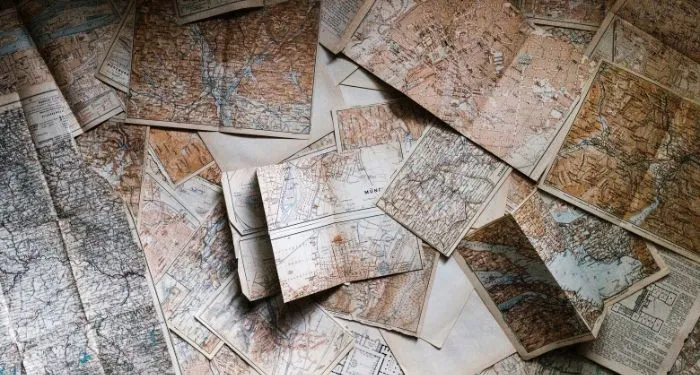
8 Human Migration Books to Broaden Your Horizons
If you have ever felt twitchy staying in one place for too long or have perpetual itchy feet, I have some good news for you: that’s just part of the human condition. Since time immemorial humans have been wanderers, going all the way back to before Homo ergaster first left Africa, likely following their food into lands unknown. Ever since, humans haven’t liked staying in one place for too long, moving on to follow the herds, moving away from populated areas that are beginning to collapse under its own weight, moving on for the simple pleasure of knowing what else is out there. Curiosity may have killed the cat, but satisfaction brought it back as these books about migration show. From the Bantu to the Norse to the Polynesian peoples, multiple cultures made traveling and migrating a fixture of their culture, and for good reason. Migrating peoples do not only bring themselves, but also their culture and ideas. A flow of new people into a region keeps the culture from stagnating.
But you cannot talk about human migration without acknowledging the fact that often people do not have the choice to stay where their home is. Forced displacement has become a bigger issue in recent years due to climate change, ethnic cleansing, and war, but it is about as new as our drive to travel in the first place. Sure, now there’s a more frequent need to leave your home because you’ve had multiple once-in-a-lifetime natural disasters happen to your home, but having to flee your home because others are forcing you is nothing new. Fights over resources had the less-powerful having to give up prized land to the winners. In time periods like the Age of Exploration, it was not uncommon to have people you have never seen before arrive, say the land was theirs, and tell you to leave…or shackle you and force you to work on the land you once called home. Or shackle you, throw you in a boat, and take you far away from your home. The home you will never see again and that your descendants will probably never see either.
A lot of these books about migration are those kinds of stories. Migration is a massive worldwide issue and has been for generations. So many people have fled their lands just to be met with hostility in the place they’re having to build a new home. Where once the flow of populations was able to move naturally across the land (some still never quite welcome: just look at how Jewish and Romani people have been received throughout history) stringent borders and regulations have made finding a new land to call home a headache for some and a nightmare for others.
But just remember, no matter the reason for your travels, in the immortal words of Buckaroo Banzai: “No matter where you go, there you are.”
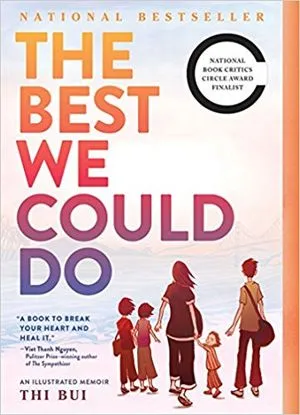
The Best We Could Do by Thi Bui
Thi Bui’s family fled Vietnam by boat in the 1970s after South Vietnam fell and made their way to the United States to create a new home. Thi Bui was three years old. That is where this graphic memoir begins, and it goes on to detail the struggles her family had in a new home and the fights her and her mother would have over the years as difference in cultures made family arguments worse. The book goes beyond that as well, laying out exactly what life was like in Vietnam during the war, in ways that isn’t often discussed by American classrooms or media.
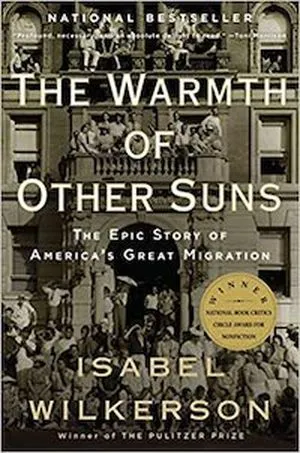
The Warmth of Other Suns by Isabel Wilkerson
In the 1910s an event known historically as the Great Migration in the United States began. Triggered by oppressive Jim Crow laws and the hope for better economic and educational opportunities elsewhere, Black populations across the South began the move into Northern and Western cities. An estimated six million Black individuals migrated from the South over the course of nearly 60 years, changing the face of the states and leading to cultural revolutions like the Harlem Renaissance. This book tells the story of three of those six million: a woman in 1937 who went from Mississippi to Chicago, a man in 1945 who traveled from Florida to Harlem, and a man in 1953 who left Louisiana to get his medical degree.
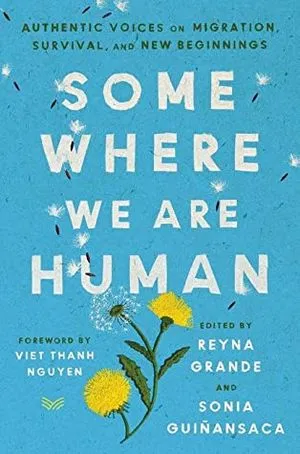
Somewhere We Are Human: Authentic Voices on Migration, Survival, and New Beginnings edited by Reyna Grande and Sonia Guiñansaca
A collection of 35 different essays, poems, and pieces of art created by 35 different refugees, migrants, and Dreamers in the United states, this book creates a human face for the people who are usually discussed in abstract or derogatory terms when it comes to immigration. It looks past the various authors’ migration status and allows them to tell their story the way they want at intersections of gender, nationality, sexuality, juxtaposing the pain of leaving their homeland and the hope they have for a better future for themselves and their family.
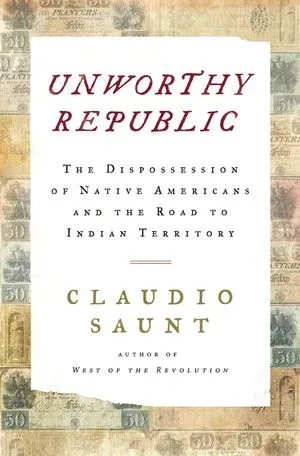
Unworthy Republic: The Dispossession of Native Americans and the Road to Indian Territory by Claudio Saunt
With Thanksgiving comes the perpetuation of the kumbayah style civic myth of the first celebration. A myth that sets the tone for how we engage with what the United States government did in the name of westward expansion and manifest destiny, including the first state-sponsored mass deportation of the modern era and causing 80,000 Indigenous men, women, and children to lose their homes and countless to lose their lives on the walk west. This book details the historical record of the story of the Indian Removal Act of 1830, including firsthand accounts, and shows that it didn’t have to happen. You will become furious at how we have treated Indigenous peoples over the centuries, if you weren’t already.
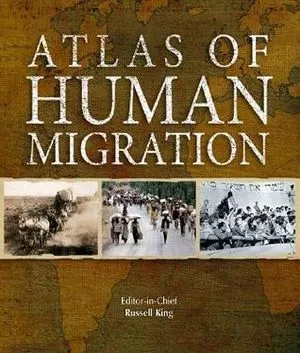
Atlas of Human Migration edited by Russell King
If you were looking for a book on the history of migration, as well as its causes and the barriers migrants can have, this is it. Admittedly more of a reference book than one you pick up to read for pleasure, it’s still a good read to have if migration is one of your interests. It reaches all the way back to the prehistoric migrations of the Indo-European peoples to the Indian-Pakistani partition and recent African civil wars. It has just about everything you need and if it doesn’t have exactly what you’re looking for it at least has a good place to start.
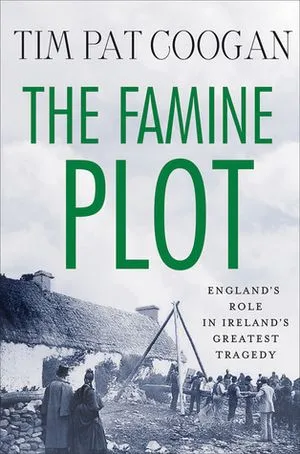
The Famine Plot: England’s Role in Ireland’s Greatest Tragedy by Tim Pat Coogan
The Great Irish Potato Famine was one of the worst disasters of the 19th century, and it was entirely manufactured…and not even a true famine. Ireland was still producing more than enough food to feed everyone on the island; it was just being taken and shipped off to England since all the landowners were British, leaving essentially only potatoes for Irish workers to eat. If you read Jonathan Swift’s A Modest Proposal in school and wouldn’t mind a more in depth context than what you likely got in class, this is the book to pick up. A full quarter of the population either died or emigrated due to the famine, and it’s the reason there’s such a large Irish-American population today: an estimated two million Irish individuals made the trek to America in search of refuge.
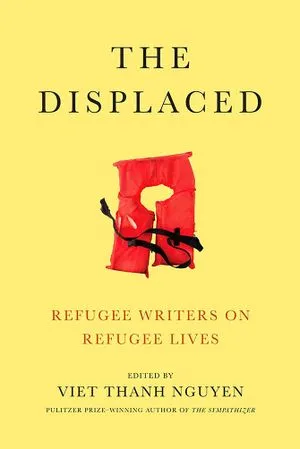
The Displaced: Refugee Writers on Refugee Lives edited by Viet Thanh Nyugen
This book was created in response to the refugee caps placed by then President Trump in 2017. Within it you will read stories from various well known writers of their own refugee stories, where they came from and why they had to leave, or in some cases why they cannot leave and feel like a stranger in their own home. There are 20 powerful essays laid bare, all sparking empathy and reminding us that though these types of crises are often spoken of in abstract terms, there are people living through terror and loss who need all the support they can get.
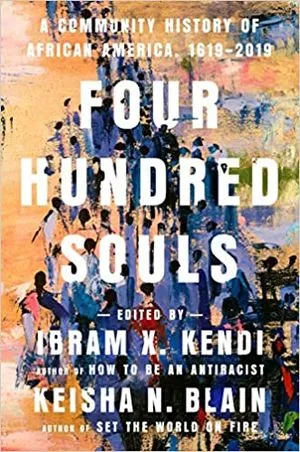
Four Hundred Souls: A Community History of African America, 1619-2019 edited Ibram X. Kendi and Keisha N. Blain
Another anthology, this one chronicling the four hundred years of the Black American experience starting in 1619, when the first enslaved Africans were brought against their will to the United States. It’s broken up into 80 chapters, each covering a major point in Black American slavery, including their forced migration and servitude to the Great Migration during the first World War, even discussing why the Back to Africa movement was such a failure.
If you’re looking for some more immigration books, including fictional stories and books aimed towards children, I recommend checking out this list of what we think are some of the best immigration books.
















